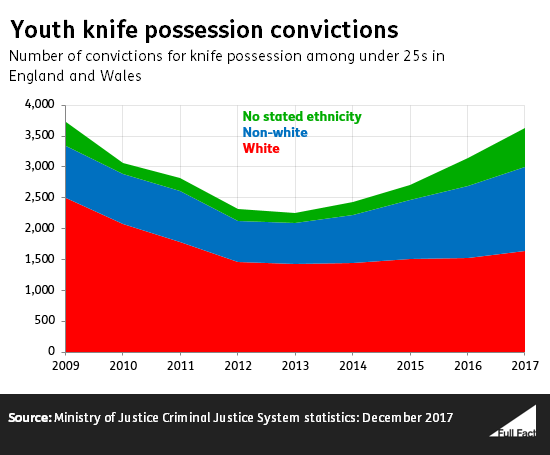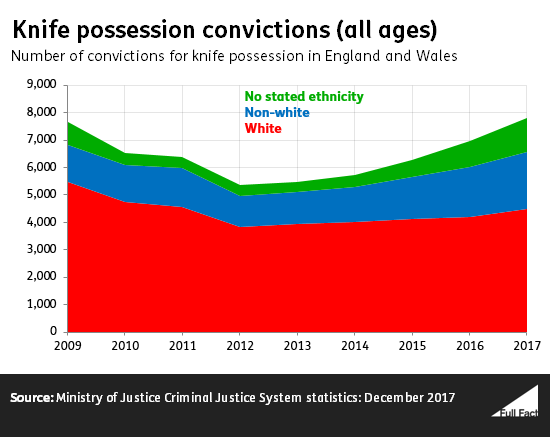What was claimed
Two thirds of knife offenders under 25 were black or minority ethnic.
Our verdict
In England and Wales 38% of knife possession offenders under 25s were non-white in 2017. It was two thirds in London.
What was claimed
Two thirds of knife offenders under 25 were black or minority ethnic.
Our verdict
In England and Wales 38% of knife possession offenders under 25s were non-white in 2017. It was two thirds in London.
“Two thirds of knife offenders under 25 were black or minority ethnic”
David Dimbleby, 8 November 2018
The claim seems to refer to data on knife crime in London only, not the country as a whole. In 2017 two thirds of knife crime offenders under 25 in London were black or minority ethnic, according to the Mayor of London’s Office for Policing and Crime.
Across England and Wales in 2017, 38% of knife possession convictions among under 25s were convictions of youths who self-defined as an ethnic minority, according to data from the Ministry of Justice.

Among all age groups 27% of knife possession convictions in 2017 were of non-white people. This proportion has increased since 2009, when it was 18%. Knife crime convictions generally have been rising in recent years from a low in 2012.

Correction 4 December 2018
We originally said the claim was incorrect because it referred to data for London only, without specifying that fact. On reflection we feel the discussion was focused on crime in London so it was unfair to say the claim was incorrect. We have changed the conclusion accordingly.
Full Fact fights for good, reliable information in the media, online, and in politics.
Bad information ruins lives. It promotes hate, damages people’s health, and hurts democracy. You deserve better.